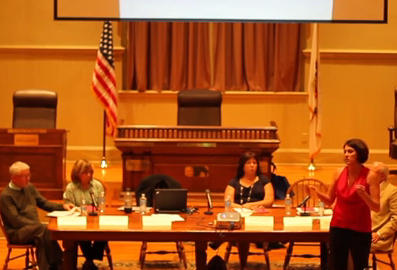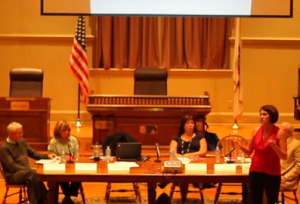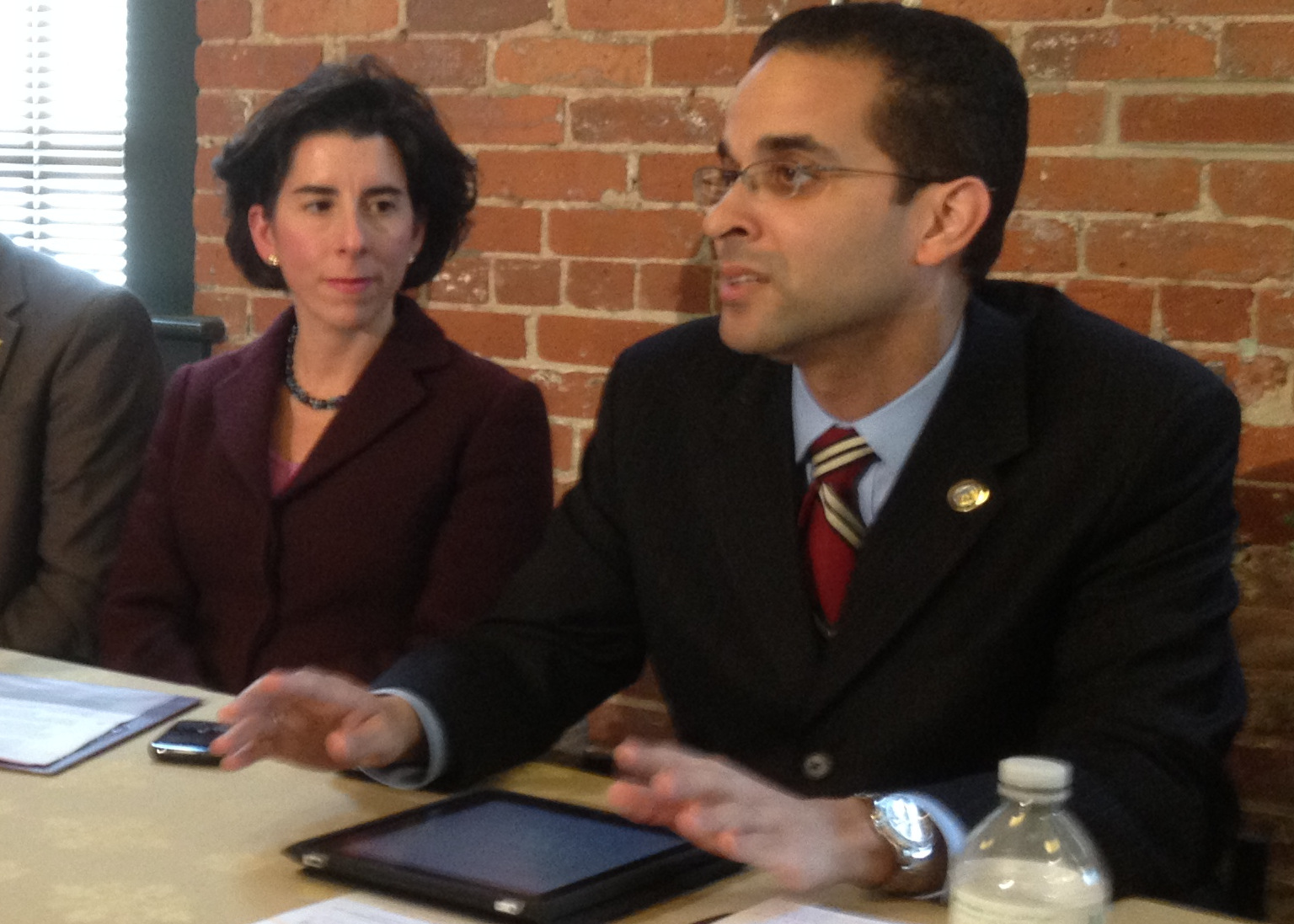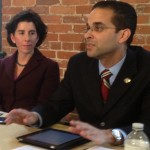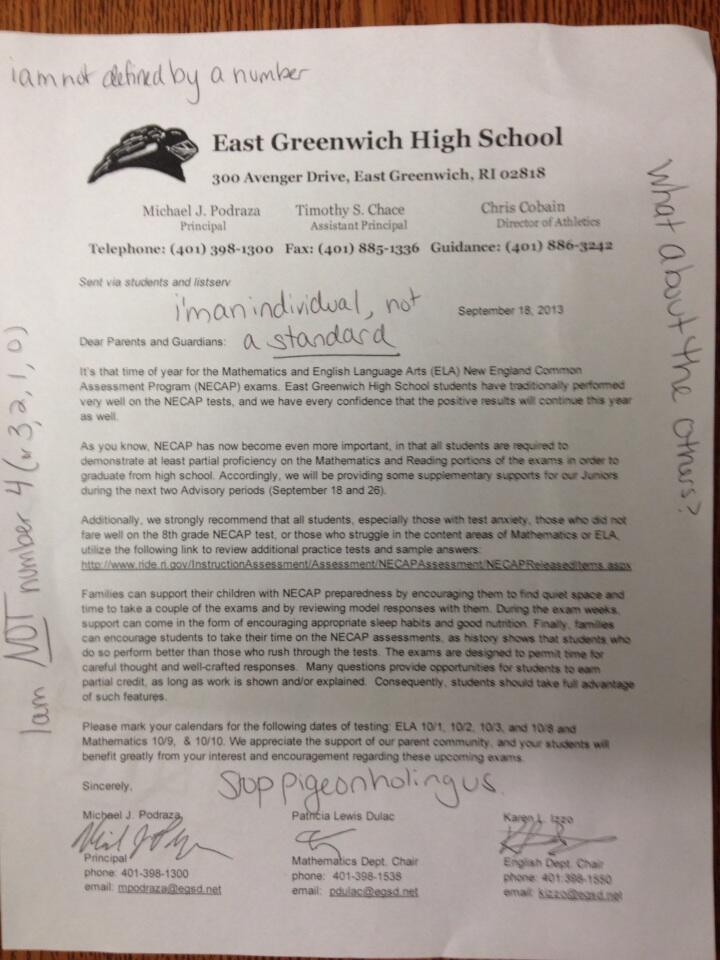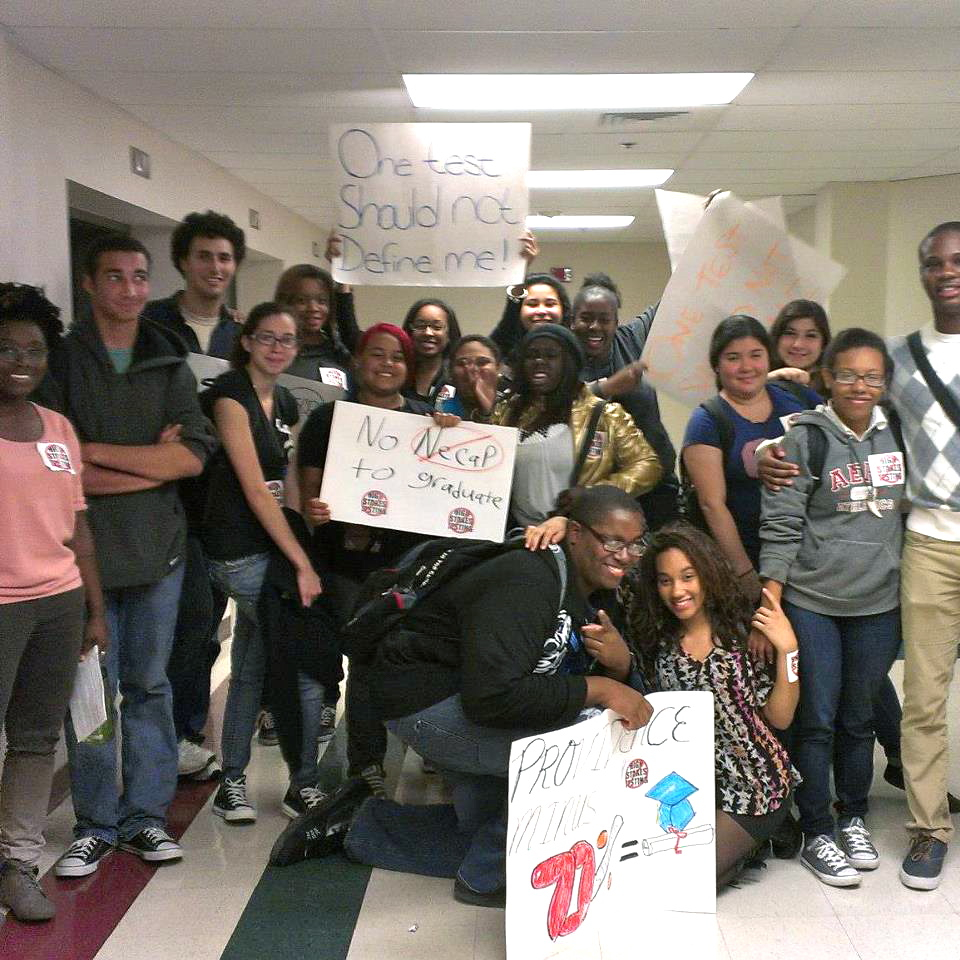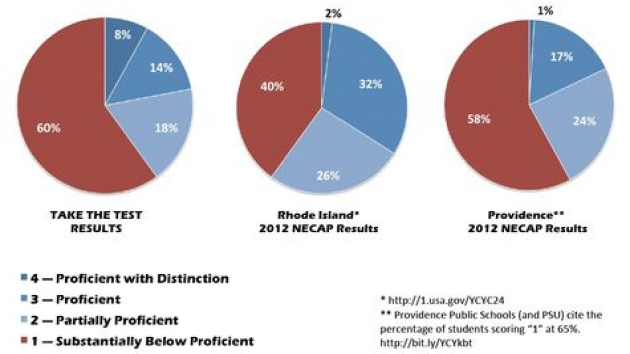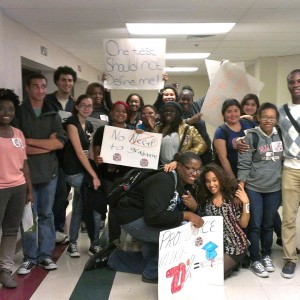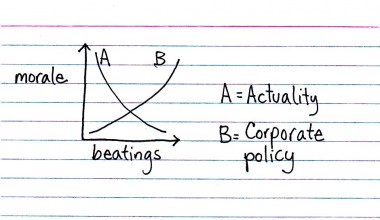Activists opposed to using the NECAP as a high stakes graduation requirement came in large numbers to the Board of Education meeting on Monday night. But only a small number were given time to talk.
As such, I thought I’d post some of the comments from the public that the Board didn’t get a chance to hear live. Among them are a former school committee chairwoman, a former RIDE employee and the head attorney for the Rhode Island Disability Law Center.
If you prepared remarks for last nights meeting but didn’t get to share them, please post them in the comments at the end of this post.
Jean Ann Guliano, parent, former East Greenwich School Committee chairwoman:
My name is Jean Ann Guliano and I have a 17 year old son on the autism spectrum who will be starting his junior year at East Greenwich High School in a few weeks. I am also a former Chairman of the East Greenwich School Committee, a former member of the Rhode Island Special Education Advisory Committee and the Rhode Island Association of School Committees Executive Board.
I will first refer to a white paper written by Dr. Michael Russell who is Sr. Vice President, Strategic Development at Measured Progress, Inc., entitled Digital Test Delivery: Empowering Accessible Test Design to Increase Test Validity for all Students. The paper advocates for a digital content, computer based test design in order to improve accessibility for all students. He explains that in designing multiple choice paper and pencil tests, like the current NECAP, test items are created assuming that:
- Students are reading at or near grade level
- Students speak fluent English
- Students do not have a disability that prevents them from accessing the question being asked (motor skills, executive function skills, visual acuity, language processing skills, etc.).
If a student has any of these limitations, there is a concern over validity. This concern stems from that fact that the test results may be showing the limitation instead of the desired outcome. In addition, utilizing accommodations, after the fact, raises further concerns over validity as the conditions of the test administration is being fundamentally changed. Based on these concerns, I would urge the Board to ask representatives from Measured Progress if the test scores on the NECAP are valid for all students taking them no matter what their limitations.
The consortium for the new PARCC tests are attempting to use a similar methodology in creating their computer based universal design tests. It should be noted that this test has not yet achieved an acceptable level of accessibility. Just last week, a technical review panel set up by the U.S. Department of Education told the PARCC consortium to go back and research how the test items will be accessible for students with different disabilities and for English language learners. They also recommended retraining their test item writers and to provide more field studies for the full range of disabled students. Obviously, creating a one size fits all test for all types of learners is extremely difficult to accomplish. PARCC isn’t there yet, and NECAP is simply not there.
In addition to my concerns about NECAP, I am also very concerned about how our state treats students with disabilities and learning differences. In the recent Birch School interim settlement, the U.S. Justice Department was very clear in their criticisms regarding opportunities for these students. Specifically, Birch students were:
“…excluded from the opportunity to receive high school diplomas, and are only awarded certificates of attendance.”
This practice, as they pointed out, exposes students to the “…significant and often lasting stigma attached to not receiving a diploma” as the “…lack of a high school diploma impacts negatively upon employers’ perceptions of potential employees.”
In citing the report by the Council of Great City Schools, the Justice Department settlement also stated that there were “…no expectations that students graduate with a regular diploma.”
To remedy this, the interim settlement states that students should “…not be unnecessarily or unjustifiably excluded from the opportunity to receive a high school diploma.”
This is not isolated to Birch. In every district in this state, there are students who have been placed in an alternative learning environment, whether a tech program or alternative learning program, who will only receive a certificate – not a regular diploma. Therefore:
- Should students who want to learn a trade or tech skills be denied a diploma?
- Should developmental or cognitive ability determine if a student is worthy of a diploma?
- Should students who have not had an opportunity to learn be denied a diploma?
These are crucial questions the Board needs to ask if they wish to continue with the diploma system as it is scheduled to be implemented in September.
Students who will be entering their senior year in a few short weeks who did not achieve partial proficiency on the October 2012 NECAP, (the results for which they received a few months ago) will be required to take it again this October. These students will not know until 2 months before they are supposed to graduate whether or not they met the partial proficiency requirement. If they still do not meet that requirement, they will need to take another version of the test within a few weeks of graduation. The timing of these tests is still not clear. Only after taking this final test will they be eligible to apply for a waiver, take another test to show proficiency, or, if they still do not pass, be denied a diploma. Why?
Instead of using the last year of a student’s school experience to cram for a test (on concepts that they may or may not be able grasp), why not sit down with that student’s IEP team and their parents to determine what goals can be accomplished in this final year to make this student successful in their post-high school future. Provide alternative measures that enable the student to demonstrate progress towards the goal of achieving to the best of their ability. In addition, utilized true multiple measures to assess a student’s knowledge and abilities, not simply multiple administrations of the same test.
True multiple measures will enable students to demonstrate their unique strengths and abilities. For example, some learners with disabilities simply do not understand algebra – particularly those who are visual thinkers. The inarguably brilliant, autistic and self-proclaimed visual thinker, Dr. Temple Grandin, points out that she never understood algebra because it can’t be visualized. Her brain simply doesn’t work that way. Yet, it is undeniable that her visual skills are invaluable in livestock handling design.
The same can be said for those who can visualize geometric concepts but not comprehend geometric equations. Both skills have value. Education is supposed to be ‘the great equalizer.’ Instead it’s become ‘survival of the fittest.’ And, the fittest are those who can answer questions on a one-size-fits-all standardized test. What some may view as having a diploma that ‘means something,’ I view as a systematic disenfranchisement of children with intellectual disabilities, developmental disabilities, or other language barriers.
It doesn’t have to be this way. If you have students with diverse learning styles, schools provide differentiated instruction. Therefore, if you provide differentiated instruction to accommodate those diverse learning styles, why wouldn’t you provide differentiated goals and assessments?
If we teach all students to the very best of their abilities, from the brightest to the most challenged, we will raise the standards for everyone.
Bob Houghtaling, Director, East Greenwich Drug Program; former RIDE employee:
This evening you will hear compelling testimony from many groups and individuals pertaining to the ineffective and unfair use of standardized tests as a graduation requirement. Without question, English Language Learners, students with special needs and young people burdened with socio-economic concerns are negatively impacted by this practice. With this being stated, I have additional concerns.
While many have commented about standardized tests’ negative impact in terms of critical thinking skills, creating a teaching-to-the-test dynamic and the over-emphasis on some subjects at the expense of others, still more needs to be looked at.
I have worked in the human services for approximately 35 years. Over this span, my experience includes: serving as an outpatient clinician; director of a half-way house (for alcoholics and drug addicts); a consultant to the Training School; an adjunct professor at Providence College, the RI Department of Education and presently the Director of the East Greenwich Drug Program. I point this out merely to illustrate that I have worked with young people and folks suffering from mental illness for some time.
The way we are educating young people today is significantly different from how they were educated 15-20 years ago. Some schools have eliminated recess. Many others have eliminated study halls.
Students are required to take more classes, factor in senior project and pass a standardized test to graduate. In my practice, I have witnessed that this accelerated pace has caused significant stress for many young people. Because of this stress, more and more kids are being prescribed medications to help them cope. In East Greenwich, where I work, there has been a rise in prescription drug use/abuse among our youth population. I believe that a portion of this can be attributed to stress caused by an inability to adjust to the rigors and expectations imposed on them by our present educational system.
In fact, the American Psychological Association has expressed concern about using a single measure such as a standardized test as a requirement for graduation. Instead, they advocate including other relevant and valid information, as well. The issue is not so much the test but how it is applied.
Once, educators factored in Montessori, Piaget, Gardner and Elkind into their decision making process. Now, it appears that folks like Bill Gates and numerous testing companies carry the most weight. Using the NECAPs as a graduation requirement exposes many concerns. As you already know, the test was never intended to be used as such. All students are negatively impacted under the present system.
Thank you for your consideration regarding this matter. Education can and should be fun. It can also be done in a way that promotes a lifelong respect for learning. Teaching to the test has established a survival of the fittest scenario. Unfortunately, in this instance, even the fittest might not be very fit.
Anne Mulready, Supervising Attorney, Rhode Island Disability Law Center
Thank you for the opportunity to address the Board of Education. I am writing on behalf of the Rhode Island Disability Law Center (RIDLC). We are the federally funded non-profit law office designated as the state’s protection and advocacy agency for individuals with disabilities in Rhode Island. Over the last thirty years, a major focus of our work has been advocacy for the rights of students with disabilities.
Last month, RIDLC along with sixteen other community agencies petitioned the Board to initiate rule-making so that the Board of Regents regulations for high school graduation could be reconsidered. On behalf of RIDLC, I am here today to urge you to do so, and urge you to adopt the regulatory amendments proposed by our organizations. Our proposal would amend the Proficiency Based Graduation Requirements to eliminate the use of state-wide assessments as a high stakes test for graduation. We believe that state-wide assessments should be used only to measure school and district performance and to target reform efforts.
Children with disabilities were identified as one of the “at-risk” groups to benefit from federal and state education reform efforts. These reforms were supposed to ensure access to a high quality curriculum and close the equity gap for at-risk groups. For children with disabilities in Rhode Island, our use of a high stakes test is having the opposite effect – it’s widening the equity gap. Eighty-three percent of students with disabilities in the Class of 2014 are at risk of not graduating due to their scores on the NECAP. And, as RIDE has acknowledged, theachievement gap between students with disabilities and those without continued a general widening trend for all grade levels tested in 2012.
These results are not surprising given what we know about educational best practices for students with disabilities. A one-shot, one-size fits all test as a measure of achievement is counter to what we know about how students with disabilities learn and demonstrate their skills.
In April 2012, the National Center for Educational Outcomes published its study on “Diploma Options, Graduation Requirements and Exit Exams for Youth with Disabilities: 2011 National Study.” In that study, the National Center recommended “mak[ing] high school education decisions based on multiple indicators of student’s learning and skills,” and supported “multiple pathways” to demonstrating graduation readiness.
Even in Massachusetts, a state often touted as a high-stakes testing model, requiring the passage of MCAS as a condition of graduation, has had a disproportionate negative impact on students with disabilities. A recent study by Louis J. Kruger and Timothy McIvor of Northeastern University, indicates the number of general education students failing the high school MCAS has decreased 58% since its inception through 2012. However, the number of special education students failing the high school MCAS has increased 12% during that same period. As the authors note, rather than promoting high standards, the current system has evolved into a method of depriving some of our most vulnerable students of a decent future.
On behalf of students with disabilities, we urge you to revisit the current ProficiencyBased Graduation Requirements, and adopt a system that gives all students the opportunity to demonstrate their knowledge and achievements.
 With so many students bombing the NECAP test, the state Senate moving forward with a bill that would put a moratorium on using the high stakes test as a graduation requirement and the Board of Education being chided by a court for having a discussion about all this in private, Justin Katz and I debate the matter on this week’s NBC 10 Wingmen.
With so many students bombing the NECAP test, the state Senate moving forward with a bill that would put a moratorium on using the high stakes test as a graduation requirement and the Board of Education being chided by a court for having a discussion about all this in private, Justin Katz and I debate the matter on this week’s NBC 10 Wingmen.





